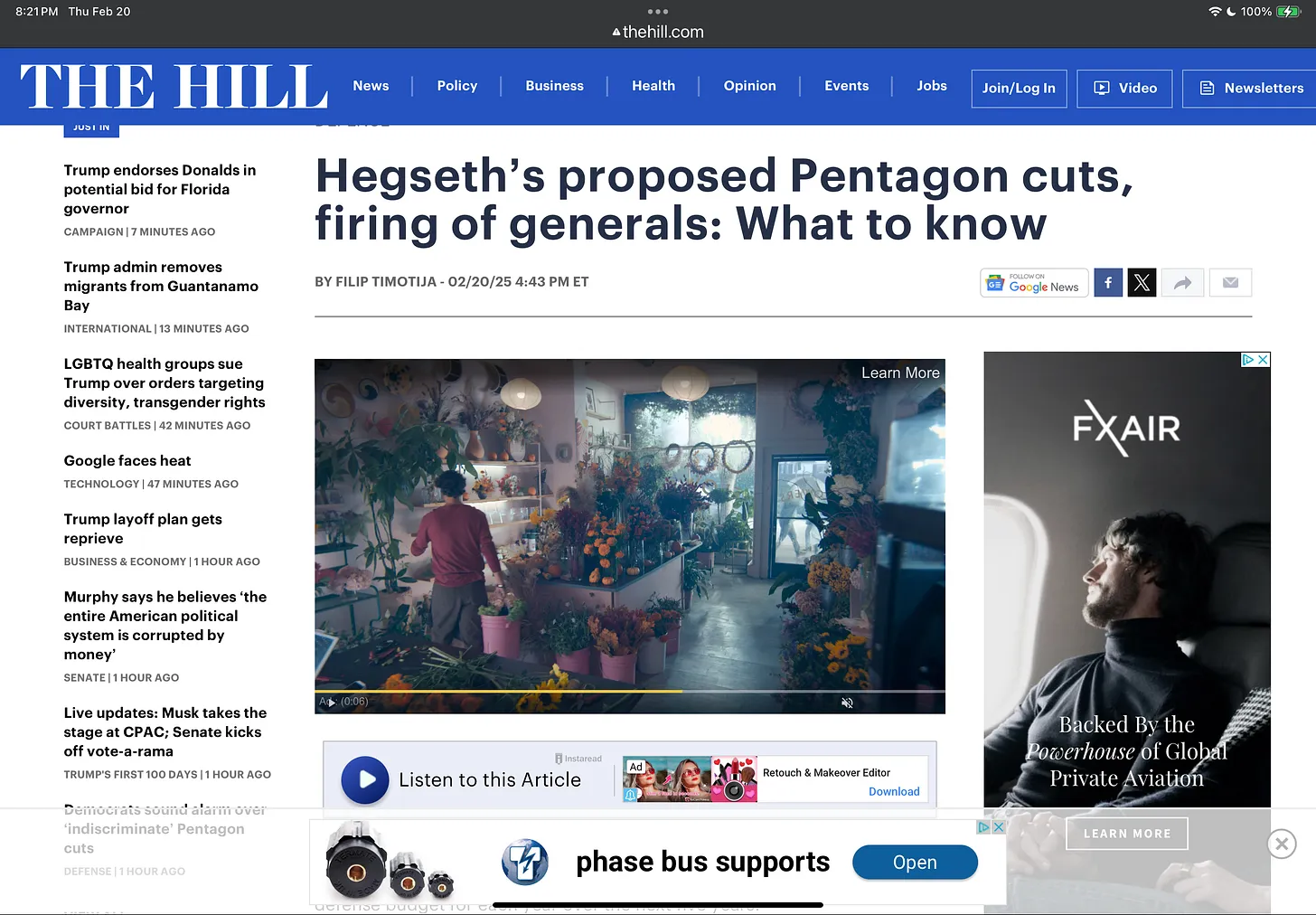And why it has no place in military service

Guest post by Thomas Klocek, USNA '69
The current climate of being “woke” is all about oneself. It is political correctness on steroids. It rewards conformity to ideological perspectives rather than real performance. It does not look at others, their needs (except when “virtue signaling” – trying to make yourself appear to be taking the moral high ground), or how to work with them. Some of the basic principles of being “woke” include lack of personal responsibility for one’s actions, the need for safe spaces when there is a hint of adversity, and the right to be offended at the slightest trigger.
The youth of today are indoctrinated into being afraid to think for themselves. The idea of self-sacrifice is foreign to them. Today’s counterculture and the tyranny of moral relativism have twisted their development. This culture pushes them to believe that their nation, their upbringing, their families, and their history are all based on hate. It is divisive and works to set them apart and isolate one group from another based on all the biases the elites can think of. You cannot build an effective team if the members are in conflict with each other. Teamwork requires unity, not divisiveness. Recognizing that divisiveness is prejudicial to good order and discipling, the military services have led the way in fighting racism and fostering equality of opportunity. For decades, the military has provided equal pay for equal service.
A major characteristic of military service is self-sacrifice. Military members give up time with their families to deploy for months at a time, even more in crisis situations. They put their lives on the line. One doesn’t have to be in a combat zone to be in dangerous situations. For example, just going to sea is a hazardous situation.
Get gains in the gym in style with AFP Merch!
A friend recently sent me a picture of a famed New England lighthouse being assaulted by the towering waves of an early winter storm. Needless to say, the lighthouse, despite having withstood the ravages of the sea for over two hundred years, suffered some damage. The photographer who caught the awesome picture noted that he was in awe of the power of nature. Given time, just about anything manmade will succumb to nature. The world, beautiful and awesome as it is, can be a very harsh and dangerous place. Talk to any sailor who has weathered a storm at sea (or just the daily conditions in the North Atlantic in fall/winter). Think about WWII when the illustrious Bull Halsey ran into a typhoon and lost 3 ships with several others significantly damaged and numerous sailors washed overboard. The ships were there when the sun went down but could not be found the next morning. Having spent over two years at the Oceanography Center in Guam, I can attest to the power of these tropical storms.
This is the stuff of songs, even in the inland seas known as the Great Lakes, such as the Wreck of the Edmund Fitzgerald. The sea is not a place for wimps. You don’t get a participation trophy – you survive, or you don’t. And to survive, you need courage, teamwork (unity), and perseverance. Courage is not the absence of fear, it is acting in the face of fear and danger, not turning your back on it. Hardly characteristics of “wokeness.”
Think of the men who signed our Declaration of Independence. They certainly were not looking for a “safe space.” The Constitution of the United States guarantees to protect every state against invasion (i.e., individually or collectively) and empowers congress to “raise and support armies” and to “provide and maintain a navy.” Our founding fathers knew the hostility of the world at large and thus provided for protection of the nation. Following the woke agenda results in weakening the defense of our constitution and the nation as a whole by changing the priorities of the services intended to protect the country to those of catering to individuals within the services themselves. It diverts attention from issues of readiness and leadership to catering to the whims of individual members.
An organization that relies on the ability and merit cannot function effectively in an environment of equity or equal outcomes. Military service is not the subject of attendance awards but rather one of performance. The mediocre pilot is not going to fare well against an enemy who has honed his flight and dogfight skills against difficult opponents. We don’t want our fighters to be passable, we want them to be better than the enemy. A fighting unit cannot be effective in a cancel-culture environment.
Other than working to better oneself in competition with one’s peers, to advance and build a better force, the military, to be effective, is not a self-serving organization. Although there will always be a few who try to advance at the expense of others, most successful military career personnel acknowledge that their success would not have been possible without the help of others. At the Naval Academy we were introduced into the naval history of those who sacrificed themselves for others, such as Chaplain George Rentz giving his life jacket to a seaman during the sinking of the USS Houston during WWII, and telling him, “Take it, lad, you need it more than I do.” Or Lieutenant Anthony Tortoras, USMC at Guadalcanal, who wrote, “Always pray, not that I shall come back, but that I will have the courage to do my duty.”
The motto of the American Legion, the largest veterans’ organization, is “God and Country.” Military service is truly service in that it involves sacrifice. Most people who join the military do so because they believe there is something greater than themselves, not exactly a concept of wokeness. Even in the days of the draft (conscription) the underlying concept was service to the nation and to others as a necessary aspect of citizenship. Individualism had to take a back seat.
“It is the soldier, not the reporter, who has given us freedom of the press. It is the soldier, not the poet, who has given us freedom of speech. It is the soldier, not the campus organizer, who has given us the freedom to demonstrate. It is the soldier, who salutes the flag, who serves beneath the flag, and whose coffin is draped by the flag, who allows the protester to burn the flag.” —Father Dennis Edward O'Brien, USMC.
























